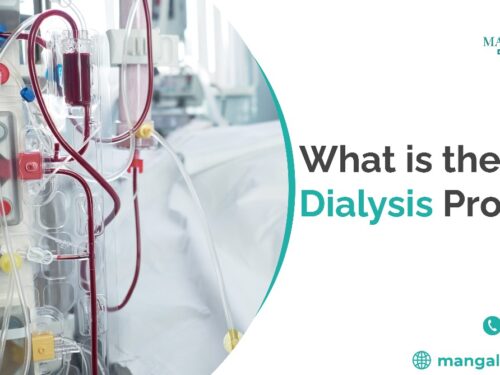
Dialysis is a life-saving medical treatment for individuals with kidney failure. While it provides essential support by removing waste and excess bodily fluids, dialysis patients often face unique challenges and health risks. Here, you can explore how dialysis patients may face specific risks. Hence, understanding these risks helps you and healthcare professionals better manage and improve the care of dialysis patients.
What is Dialysis, and What Does it Do?
Dialysis is a medical procedure used to perform the critical functions of the kidneys when they can no longer do so effectively. It involves the removal of waste products and excess fluids from the blood. It helps maintain electrolyte balance and control blood pressure, ultimately prolonging kidney failure patients’ lives.
What are the Risks for Dialysis Patients?
Dialysis patients are exposed to several risks due to the chronic nature of their condition and the ongoing need for medical intervention. Some common risks include:
- Patients receiving Dialysis through a catheter or at a dialysis center are at risk of infection.
- Dialysis patients are more susceptible to heart problems.
- Chronic kidney disease often results in anemia.
- Kidney failure can disrupt the body’s balance of calcium and phosphorus.
Also Read: Preparing For Dialysis: What To Expect?
What Causes Dialysis Patients to Die?
Several factors contribute to the mortality of dialysis patients:
Cardiovascular Disease: Cardiovascular issues are a leading cause of death in dialysis patients. The strain on the heart and blood vessels due to fluid and electrolyte imbalances can result in heart attacks, strokes, and heart failure.
- Dialysis patients have weakened immune systems and are at higher risk of infections, which can become severe and life-threatening.
- Infections, if left untreated, can progress to sepsis, a severe response of the body to infection that can lead to organ failure and death.
- Complications related to dialysis access, such as infections or clotting, can lead to serious health issues.
- Dialysis patients may struggle with malnutrition due to dietary restrictions and loss of appetite, making them more susceptible to infections and other health problems.
How Can Dialysis Patients Reduce Their Risks?
At Mangal Prabhu Hospital, you can find a team of experienced Nephrologist in Navi Mumbai who provide specialized care for kidney-related conditions. Moreover, dialysis patients can take several steps to reduce their risks and improve their overall quality of life:
- Consistency in attending dialysis sessions and following prescribed treatment plans is crucial.
- Taking medications as prescribed to control blood pressure, anemia, and other complications is vital.
- Working with a registered dietitian to develop a kidney-friendly diet can help manage complications and maintain overall health.
- Proper hygiene, catheter care, and regular vaccinations can help prevent infections.
- Frequent visits to a nephrologist or healthcare provider are essential for monitoring overall health and addressing emerging issues promptly.
Conclusion
While Dialysis is a life-sustaining treatment for individuals with kidney failure, it has risks. Understanding these risks and their causes is essential for patients and healthcare professionals. At Mangal Prabhu Hospital, a trusted Dialysis Center in Navi Mumbai, experienced nephrologists work closely with patients to provide comprehensive care to improve the quality of life for dialysis patients. By adhering to treatment plans and maintaining a healthy lifestyle, dialysis patients can reduce their risks and maximize their chances of leading fulfilling lives despite their medical condition.



